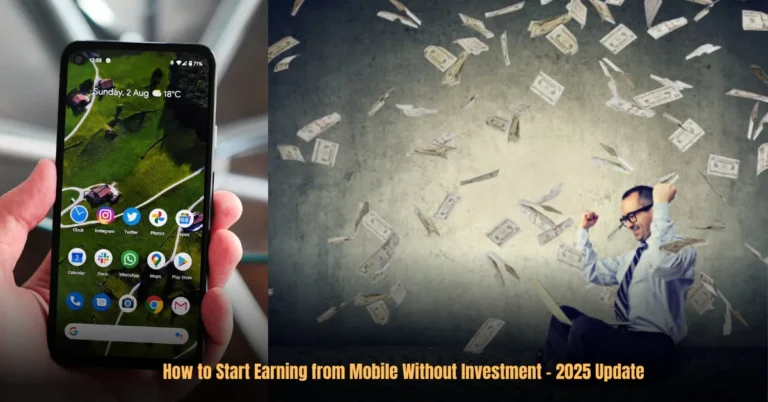How to Manage Money Wisely in 2025 – A Complete Financial Guide for Everyone
Do you sometimes feel tired of living from one paycheck to another? Many people feel the same. It is hard when your money ends before the month is over. You may worry about paying your bills or buying what you need. When prices go up, it feels even harder to use your money. But you are not alone. Many people and families have the same problem today. The good news is that you can change your situation. You can make your life better if you learn to use your money well. You can feel calm, safe, and in control of your future. When you learn to manage your money, you can make good choices and plan for important things.
This simple guide will show you how to take care of your money in 2025. You will learn how to make a budget that fits your life. You will learn how to save money for emergencies and how to pay your debts slowly. You will also learn simple ways to invest your money so it can grow with time. If you follow these easy steps, you can have a better future and enjoy true financial freedom.
Set Your 2025 Financial Goals
To manage money, you need goals. Ask yourself, “What do I want to do with my money this year?” Goals help you know what to do. Goals help you stay motivated. Without goals, you can spend money without thinking.
The best way to set goals
The best way to make goals is SMART. SMART means: Specific, Measurable, Achievable, Relevant, Time-bound.
- Specific: Your goal is clear. Example: “I want to save $1000.”
- Measurable: You can see your progress.
- Achievable: You can reach it with effort.
- Relevant: The goal is important to you.
- Time-bound: You set a time to finish it.
Different time periods for goals
You can have goals for different times.
- Short-term goals (less than 1 year): save for crises, payment 1 credit card.
- Medium-term goals (2–5 years): save for a home, payment a student advance.
- Long-term goals (5 years or more): save for retirement, make money slowly.
Tip: Write your aims on sheet. This supports you remember. Check your aims often. Change them if you need to. With complete aims and a plan, handling balance is simpler.
Also Read: Step-by-Step Guide to Managing Your Principal 401k Account in 2025
Master Your Budget and Spending Wisely
A budget is a easy plan for your balance. It supports you see where your balance move and how to control it easily.
Tracking Expenses and Choosing a Budgeting Method
Start by writing down everything you use. You can spend a notebook, your phone, or a budgeting tools. When you look how you use, you can seek ways to save.
A simple rule to start with is the 50/30/20 Rule:
- 50% for Needs: Rent, food, bills, transport.
- 30% for Wants: Eating out, movies, shopping, fun.
- 20% for Savings and Debt: Save money or pay off loans.
Note: Many people forget small monthly costs like subscriptions or apps. These small payments can add up.
Cancel things you do not use. It will help you save more.
Crush High-Interest Debt First
Debt can cause a lot of stress. High-interest debt makes it hard to save money. Make it your goal to pay it off first.
Debt Reduction Strategies
Debt Avalanche:
Pay the debt with the highest interest rate first. This supports you save extra balance over time.
Debt Snowball:
Payment the smallest debt first. When one debt is gone, move to the next step. This gives you small gains and keeps you inspired.
Student Loans:
Check if you can get a new payment plan with lower monthly payments. This can help you save more each month.
Build Your Financial Safety Net
Life can be full of surprises. Sometimes bad things happen. You can lose your job or have big medical bills. These things are hard if you have no saved money. An emergency fund is money you keep for problems. It helps you feel safe and avoid borrowing money.
Start Funding Your Emergency Fund
Try to save balance for 3 to 6 months of your required. This includes rent, bills, food, and other important things. If it is hard, start small. Save a little money every week. Little by little, it will grow. The important thing is to save regularly.
Use a Good Savings Account
Keep your backup balance in a best savings account. A high-yield savings account (HYSA) is good. It gives more interest than a normal account. You can use the money when you need it, and it will grow slowly.
Automate Your Savings
A simple way to save is to move money automatically. Every time you get charged, put some balance in your savings. This simple and easy way, you save without thinking. Over time, your backup money will increase.
Save a little, use a good account, and save automatically. You can build a strong money safety net. It will help you in hard times and make you feel safe.
Also Read: How to Use a Car Loan Repayment Calculator – Complete Guide for Beginners (2025)
Investing Wisely for Long-Term Goals
When you have an emergency fund and less debt, you can start investing. Investing helps your money grow over time.
Retirement Accounts and Portfolio Diversification
Retirement Accounts:
If your job gives you a 401(k), add money to it. If your employer matches your payment, that is free money! You can also open an IRA to save more for your future.
Diversify:
Don’t put all your money in one place. Put some in stocks, some in bonds, and some in real estate. This helps protect your money if one area loses value.
Compound Interest:
This means you earn interest on your money, and then that interest earns more interest. The longer you invest, the faster your money grows. Start early and be patient.
Advanced Financial Strategies for Tax Efficiency
When your basic money plan is strong, you can learn how to save more on taxes and protect your wealth.
Review Your Estate Plan:
Check your insurance and retirement accounts. Make sure your family or loved ones are listed as your beneficiaries.
Consider a Financial Advisor:
If you have more money or more than one source of income, talk to a certified financial planner. They can help you plan better and make good financial choices.
Conclusion and Call to Action
You don’t need to be a money expert to manage your money. You just need a plan and good habits.
By following these six steps — setting goals, budgeting, paying debt, saving, investing, and planning ahead — you can build a strong financial future.
Start today!
Download a budgeting app or write your budget on paper. Look at your spending and make one small change now. Share this guide with friends or family who also want financial freedom in 2025.
Dynamic Disclaimer
This article is for learning only. Please talk to a trusted financial advisor or check official sources before making money or investment decisions. This is not personal financial advice.







